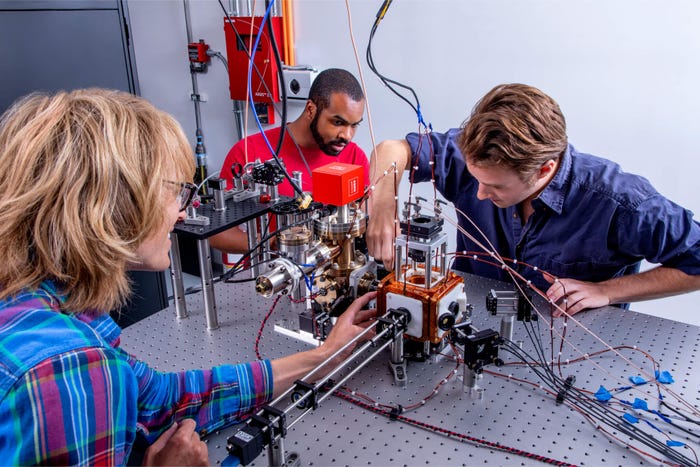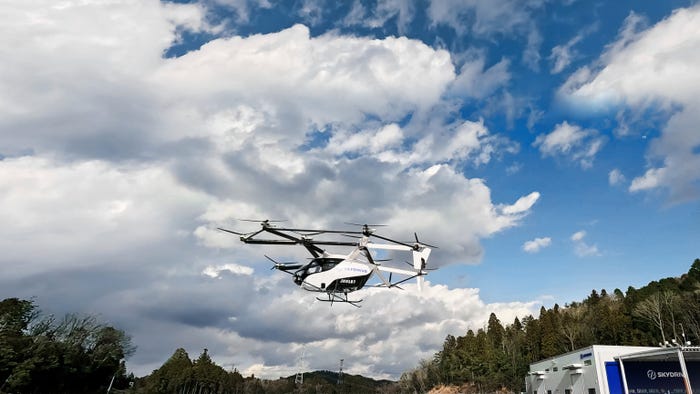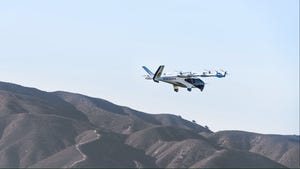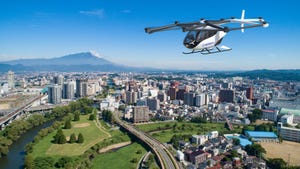Electric Air Taxi Charging Comes to North CarolinaElectric Air Taxi Charging Comes to North Carolina
Groundbreaking ceremony featured an electric plane on a trip to an Air Force base in the Florida Panhandle

The first charging station for electric flying vehicles is being installed at Raleigh Executive Jetport in North Carolina.
The groundbreaking this week featured an electric plane on a trip from Burlington, Vermont, to an Air Force base in the Florida Panhandle.
Earlier this week, the electric aerial vehicle (EAV) from Beta Technologies landed at Joint Base Andrews, the home of Air Force One, during its multi-stop trip on the way to Florida.
Beta makes both an eVTOL (electric vertical and takeoff) aircraft and an eCTOL (electric conventional takeoff and landing) craft.
The Beta Alia EAV on the tour, coordinated by the U.S. Air Force program AFWERX, the innovation arm of the Air Force, was a conventional landing vehicle.
“Investing in sustainable aviation is a clear next step for North Carolina, the First in Flight State, as we continue to be a leader in aerospace and multimodal transportation innovation,” said state Transportation Secretary Joey Hopkins.
Beta recently installed aircraft electric charging stations at Eglin Air Force Base in Florida to service the coming test of its electric flying vehicles there.
The Beta chargers are multimodal, meaning they can charge electric aircraft as well as electric cars and trucks at the airport.
“The future of transportation is electric, and as we look to make this new technology a widespread reality in aviation, forward-leaning partners and investment in infrastructure will be critical,” said Blain Newton, BETA COO. “We have certainly found that in North Carolina. We are excited to have been able to fly our all-electric Alia aircraft into Raleigh Executive Jetport from Burlington, Vermont, and chargers like the ones we will install together are what will power these types of missions in the future. This state has always been a first mover in aviation, so it’s no surprise that we’ve found support for the next generation of sustainable aviation solutions, too.”
Beta’s eCTOL aircraft is planned for service in 2025 with its vertical takeoff version in service the following year.
Beta recently flew its EAV from New York to Montreal, crossing international borders. The company test flights generally have a pilot and flight test engineer on board.
A large number of EAVs are eVTOLs, which do not require traditional runways, since they take off and land straight up and down.
Vertiport facilities to manage the takeoff, landing, charging and maintenance of such vehicles are being established globally by companies including Volatus Infrastructure and Aeroauto Vertiport Development, which also has retail showrooms for flying vehicle sales in Florida.
Beta received an airworthiness certificate for manned flight from the military, with military test pilots flying the vehicles.
Beta’s electric charger can charge an electric aircraft in less than an hour, according to the company.
Countless EAVs are under development, ranging from those in the ultralight category, which do not require a pilot license to fly, to air taxis. Major airlines including Delta Air Lines, United Airlines and American Airlines all have placed orders or pre-orders for electric aerial vehicles.
Like what you've read? For more stories like this on flying cars and other emerging technologies, sign up for our free daily email newsletter to stay updated!
Read more about:
Flying CarsAbout the Author
You May Also Like








